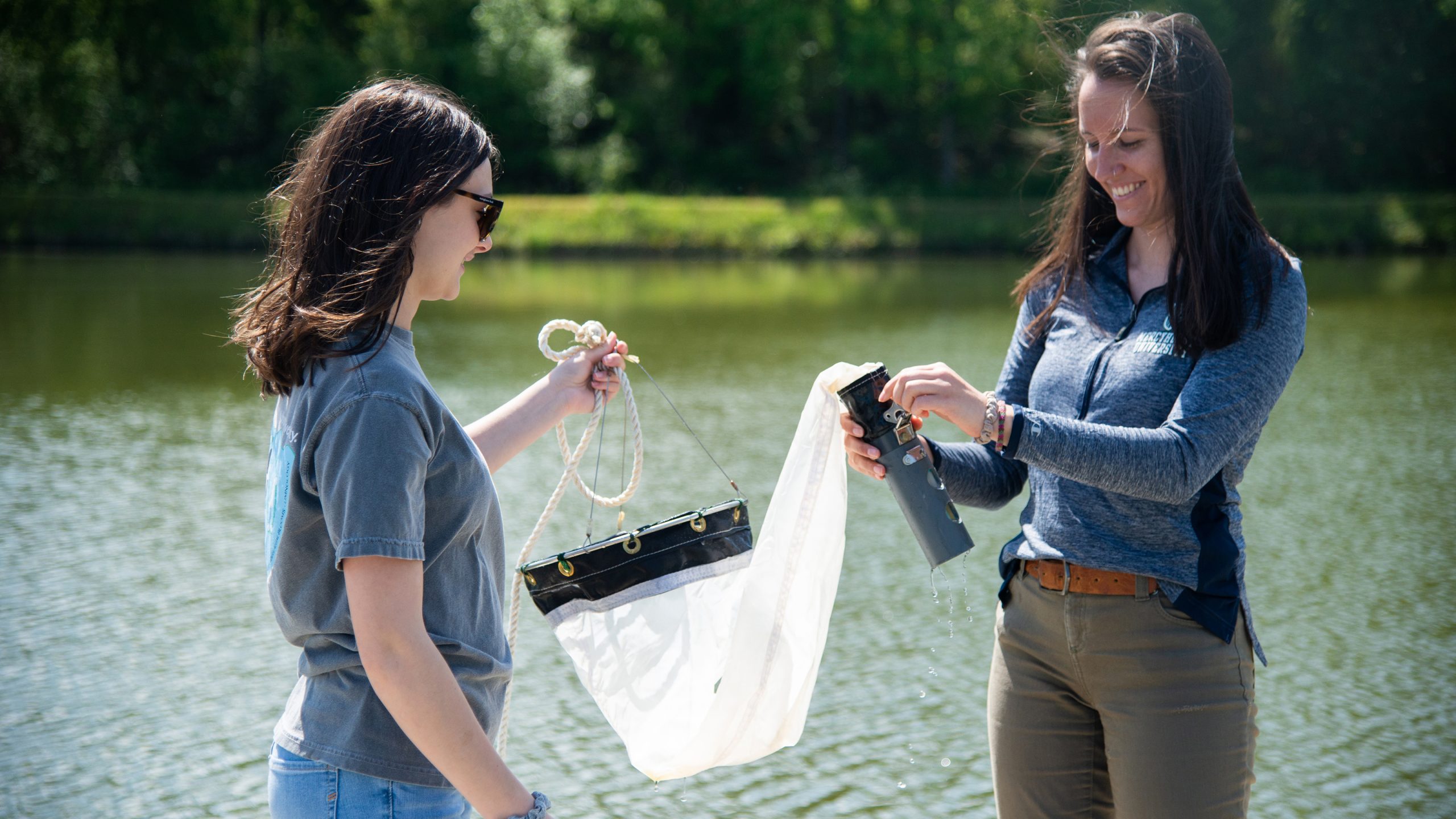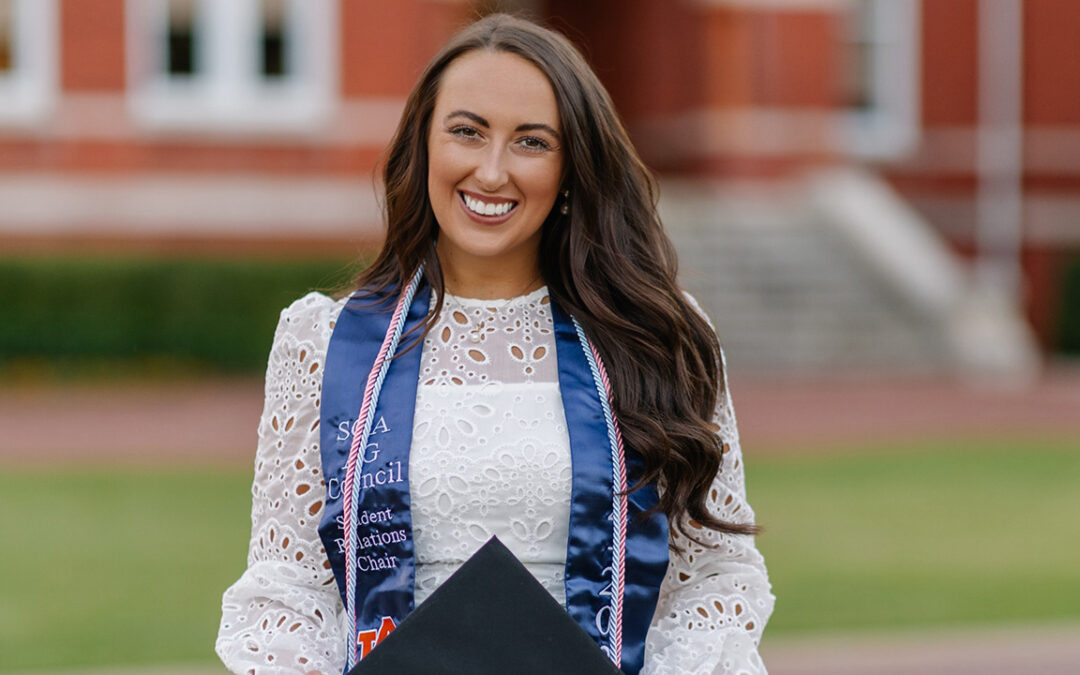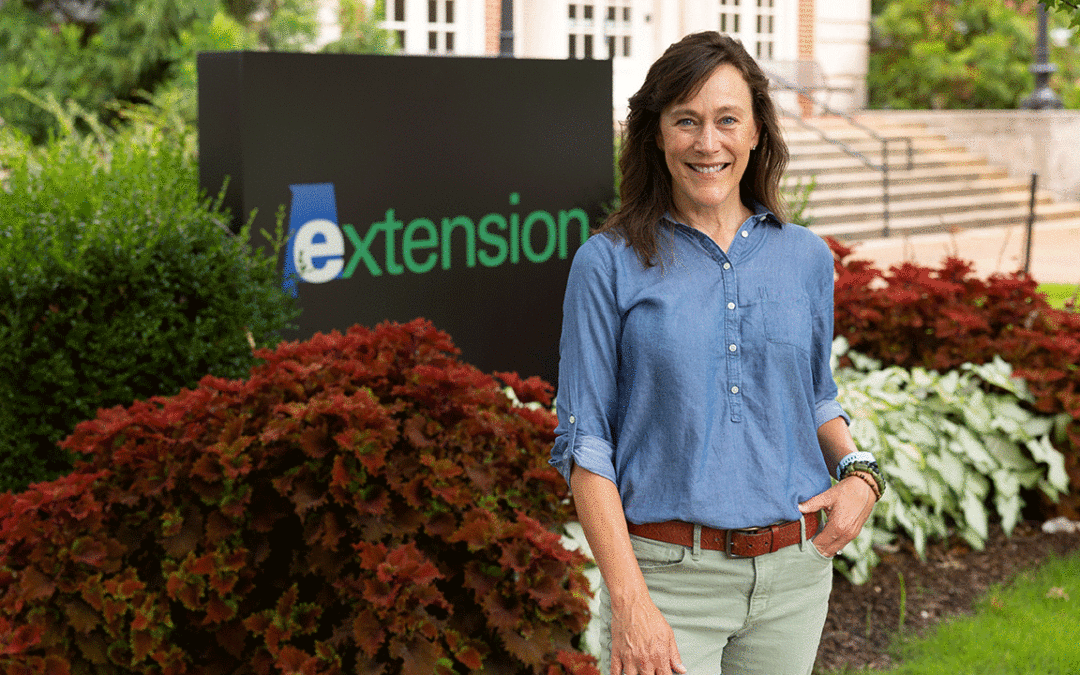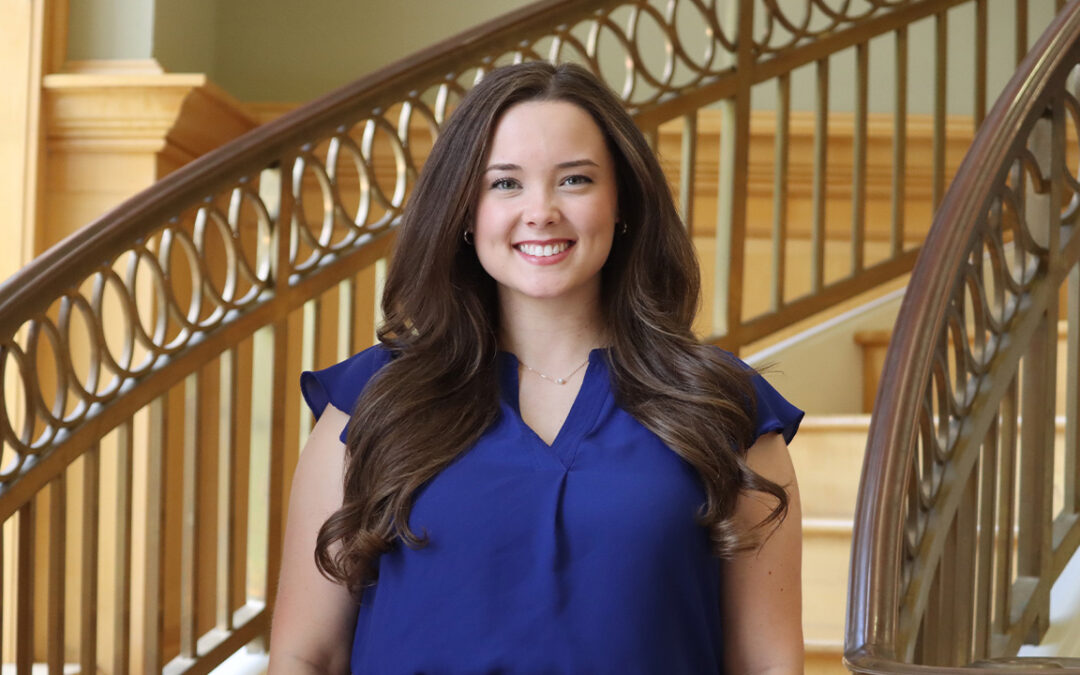Research opportunities for undergraduate students in the College of Agriculture are ample, and students are encouraged to take advantage of them prior to graduate school.
Madison Dees needed a job.
Rather than pursuing the usual part-time retail or service jobs for college students, her advisor Codi Plaster suggested she work in a lab.
Today, Dees is completing an Undergraduate Research Fellowship in the lab of Professor Alan Wilson in the School of Fisheries, Aquaculture and Aquatic Sciences at Auburn University.
“My lab works in water quality research,” he said. “We’ve been really blessed to work with a lot of high-quality undergraduate researchers like Madison. To date, I’ve trained 77.”
Most — if not all — faculty in the College of Agriculture are willing and eager to work with undergraduates, according to Associate Dean for Instruction Amy Wright.
“These opportunities are very easy to get, we just don’t have a ton of students taking advantage of them,” she said. “We could provide a research experience to every student in our college. Not all of them all at once, but every student in our college could have an experience doing research as an undergraduate.”
Some students, like Dees, earn a competitive fellowship funded in part through the university and through the college. Others, however, are working in research through hourly positions or earning course credit for their research experience. Wright said at any given time, students in every major in the college are doing undergraduate research at Auburn.
“Some of these students are honestly better scientists than I have ever been,” Wilson said. “It is really a remarkable opportunity to be able to work with them.”
Dees — a sophomore double majoring in animal science and psychology — started working in the lab as an hourly wage employee her freshman year, cleaning glassware and doing “what anybody needed me to do,” she said.
Then, in her Freshman Exploration class through the Honors College, she learned about the undergraduate research opportunities across campus. She mentioned it to Wilson, who said she “definitely should do it.”
She’s now working with fish livers in the lab.
“It is honestly kind of gross,” she said with a laugh. “But it’s catfish that we’ve sampled from west Alabama, working with catfish aquaculture farmers in that region. We are running an entire process that gives us toxin data — so I’m extracting the toxin and one of my lab mates analyzes the samples for me.”
Wilson said soon Dees will also learn how to run the analyses, too.
“These are fish that come from aquaculture ponds in west Alabama,” he said. “Some of the algae that grows out there can get really abundant, so we just want to make sure the water quality in the ponds is safe for the fish.”
Wilson said the algae in these ponds can produce chemicals that make the fish sick, which is hard to measure. He said it’s a complicated process that requires an extra cleaning step to remove fats. Dees prepares the samples for an analysis that looks for a specific compound found in some kinds of algae.
“So far we’ve not found super high concentrations,” he said. “But we just didn’t know. It’s been fairly unexplored, and it may explain why some of the fish in these ponds don’t eat or grow well.”
Dees started her fellowship in mid-August 2020, with the start of the school year. First she had to learn how to extract the toxin, and then she had to get through more than 100 samples before she left for Thanksgiving.
“It doesn’t’ sound like a lot, but it is a lot,” she said. “It’s about a 20- to 25-step process.”
Wilson said he didn’t take advantage of undergraduate research opportunities when he was a student, which he now considers a lost opportunity.
“I think I’d be a better scientist today had I explored undergrad research as a student,” he said. “When I have the opportunity to encourage students to go into undergraduate research, it’s often through guest lectures. When I have that chance, I find out how many of them are interested in pursuing degrees in STEM paths. Then, of those interested in pursuing graduate school, I ask how many are currently conducting research.
“Oftentimes, the answer is none of them.”
Wilson said he routinely hears from seniors seeking undergraduate research experience, but he believes that can be too late.
He encourages freshmen and sophomores to explore their interests and, to start, reach out to professors who do that kind of work about volunteering in their labs. Free help is often welcome, and it can be a foot in the door toward paid jobs.
“Some also may find out quickly this is not the career path for them,” he said.
Wright agreed.
“That is one of the great things about undergraduate research,” she said. “You could find out you don’t like it and save yourself the trouble of going to graduate school.”
Wright encourages students to pursue undergraduate research opportunities for a chance to learn, think and work in new ways.
“It gets you accustomed to research techniques, the nuts and bolts of how you perform those techniques,” she said. “It gets you familiar with how research questions are formed. It gives you experience with collecting data and using data to answer questions. It’s a really good way to engage that scientific method firsthand.”
Dees said she has not only learned technical skills from her fellowship, but Wilson and their coworkers have helped her hone soft skills as well, including the importance of independent work, teamwork and communication.
“She’s doing a great job,” Wilson said. “She comes in, puts her head down and does her work, and I am sure we will publish the research she is doing.”
Dees said that, as a sophomore, she’s still not entirely sure what she wants to do post-grad. But she loves the pattern of research, of knowing she can accomplish something every day.
“I have absolutely loved every minute of being here,” she said. “I learn something every day and feel like I’m contributing something daily.”





